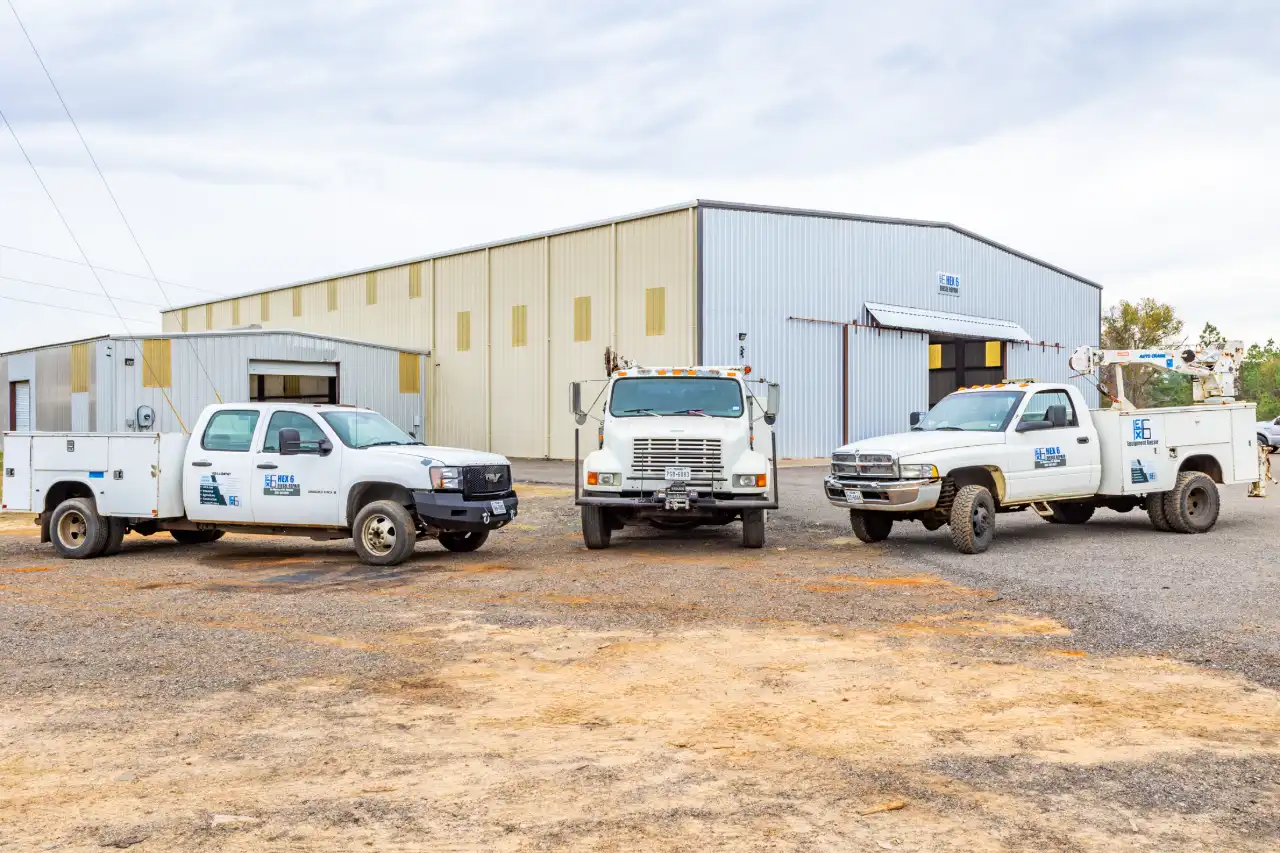Field Service vs. In-Shop Repairs: Which Is Best When Your Round Baler Breaks Down?

Timely hay harvests are crucial for maintaining forage quality, livestock nutrition, and ultimately, farm revenue. When a round baler stops working—whether due to a belt coming apart, a pickup bearing seizing, or a hydraulic hose bursting—producers must decide whether to call for field service or transport the machine to the shop for repairs, this article provides a structured, evidence-based comparison to help you select the option that minimizes both downtime and total costs while promoting equipment longevity.
Defining the Two Repair Modalities
Field Service (Mobile Equipment Repair)
Field service dispatches an on-site technician in a fully stocked truck to the baler’s location. The visit is usually scheduled in advance, rather than being purely emergency-driven, and it focuses on machinery that is difficult or costly to relocate. Mobile crews routinely handle tension adjustments, hydraulic system problems, electrical diagnostics, and other mid-level tasks without needing rigging or cranes.
In-Shop Repair
In-shop work takes place within a controlled bay at Hex 6’s Tyler, TX, facility. Staff clean the baler, mount it beneath an overhead hoist, and use specialized tooling—presses, lathes, laser alignment heads, and OEM firmware terminals. Operations such as gearbox overhauls, chamber shell welding, ECU reflashing, and complete functional testing require this environment.
Operational Scenarios
Situations Suited to Field Service
- Isolated Component Failures
- Example: A single drive chain derails or a pickup tension spring breaks. On-site replacement restores operation within hours.
- Moderate Hydraulic Leaks: Pin-hole failures in tensioner lines can be fixed immediately using on-truck crimp kits.
- Recurrent Electrical Error Codes: Mobile laptops equipped with OEM software clear and recalibrate sensors at the edge of the paddock.
- Transport Constraints: Extra-wide pickups, oversized tyres, or soft ground conditions can make trailering extremely difficult.
Limitations of Field Service
- Major disassembly (gearbox, rotor, or chamber removal).
- Precision machining or press-fit bearing work.
- Unclear root-cause failures requiring extensive shop diagnostics.
- Scarce or back-ordered parts that exceed truck inventory capacity.
Advantages Exclusive to In-Shop Repairs
- Comprehensive Diagnostics: Dynamometers rotate the driveline under load. Infrared imaging detects thermal anomalies that are difficult to observe in the field.
- Controlled Cleanliness: Dust-free bays protect open gearboxes and keep seal interfaces free of contamination.
- Heavy Lifting Capability: Overhead cranes and adjustable stands allow for safe separation of chamber shells, rotor assemblies, and stub shafts.
- Single-Visit Completion: With a complete parts inventory available, technicians handle both primary and secondary faults simultaneously, thereby reducing overall downtime.
Cost & Downtime Modelling
Downtime incurs both direct costs (labour, parts, transport) and opportunity costs (lost forage quality, contract penalties). The formula below helps estimate the total impact:
Total Downtime Cost = (Lost Production × Commodity Price) + Travel Expense + Labour + Parts + Opportunity Penalty
Field service generally reduces travel costs and the opportunity cost of faults that can be fixed within three labour hours. In-shop repairs become more cost-effective when tasks take more than six labour hours or when multiple latent issues are present. Producers should consider the machine hour rate, distance to Tyler, and forecasted weather to set the variables accurately.
Strategic Considerations Beyond Time and Money
Warranty & Documentation
In-shop repairs generate calibrated torque logs, parts traceability, and photographic evidence—documents often required by manufacturers for drivetrain or electronics warranty claims.
Safety & Compliance
Tyler’s summer heat index regularly exceeds 105°F. Performing heavy assembly outdoors raises the risk of heat-related injuries and improper torque due to tool slippage. Indoors, climate control helps ensure technician safety and precise fastener preload.
Environmental Responsibility
Shop facilities include fluid-containment systems and certified waste-oil recyclers. Proper disposal complies with provincial environmental regulations and corporate sustainability commitments.
Preventive Measures to Reduce Future Failures
A strong preventive maintenance program—including seasonal bearing inspections, belt tension checks, and firmware updates—reduces in-season failures and protects capital assets. The Diesel Repair Industry Handbook highlights that proactive maintenance improves performance and “reduces the risk of costly downtime”—schedule maintenance before the first cut to avoid peak-season delays.
Decision-Making Framework
- Failure Severity: Can you identify a single part that failed?
- Tooling Requirement: Does the correction involve the use of presses, cranes, or welders?
- Geographic Factors: Are you within 40 miles of Tyler, TX?
- Weather Window: Will rain affect forage within 24 hours?
- Warranty Status: Is thorough documentation essential?
Answering “yes” to items 1 and 4 suggests a preference for field service—affirmative responses to items 2, 3, or 5 indicate a preference for in-shop repair.
Environmental and Regulatory Compliance
Texas Commission on Environmental Quality regulations require the proper disposal of hydraulic fluids and contaminated hay residuals. In-shop procedures make compliance easier through designated containment zones, spill logs, and manifest documentation. Field service must carry portable containment mats and may need a follow-up collection visit if fluid loss exceeds legal limits.
Conclusion
Field service offers rapid, localized remediation for discrete, transport-averse faults, whereas in-shop repairs provide exhaustive diagnostics, documented quality control, and compliance assurance for complex or warranty-critical failures. Selecting the optimal pathway involves quantifying downtime, evaluating tooling needs, and acknowledging regulatory or warranty obligations. An informed decision secures operational continuity, forage quality, and return on investment.
Ready to Restore Productivity?
Contact Hex 6 in Tyler, TX, to book either a farm equipment service truck or an in-bay appointment. Our technicians will coordinate their resources with your operational priorities and restore your baler to full productivity promptly.
Contact HEX 6
HEX 6 provides experienced truck, trailer, & fleet repair services from our shop & via mobile service to Tyler, Texas & the surrounding areas. Contact us today to schedule an appointment or for emergency roadside assistance.

